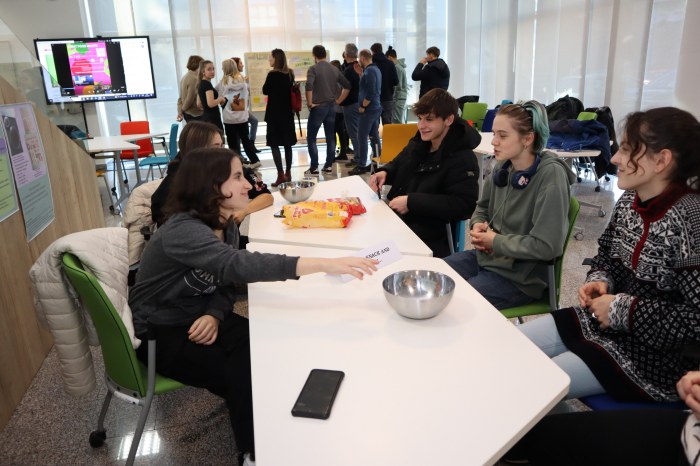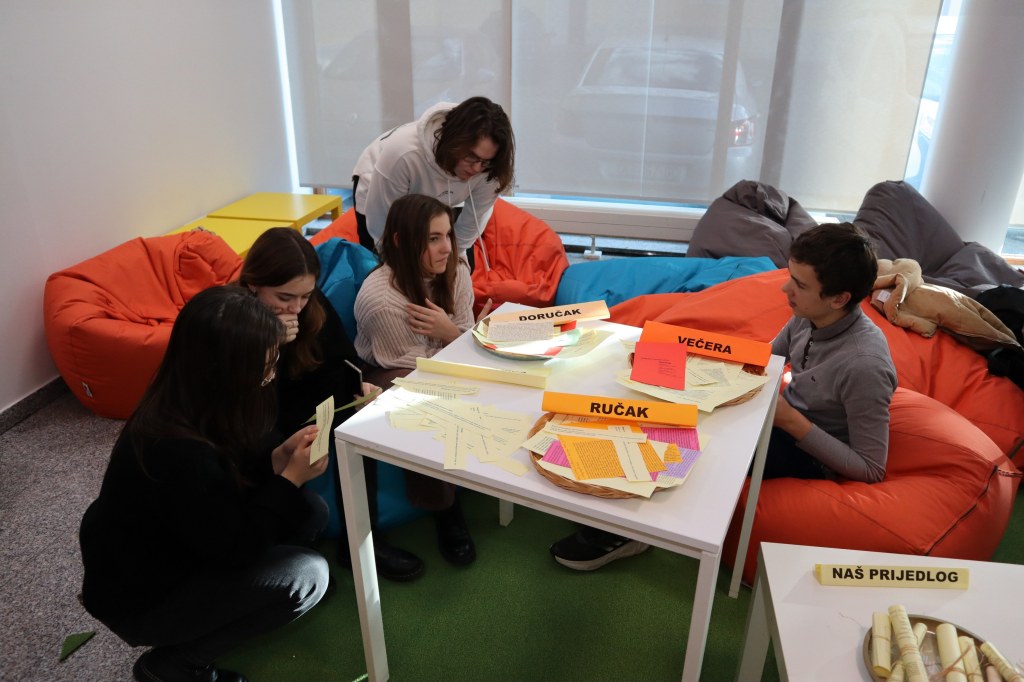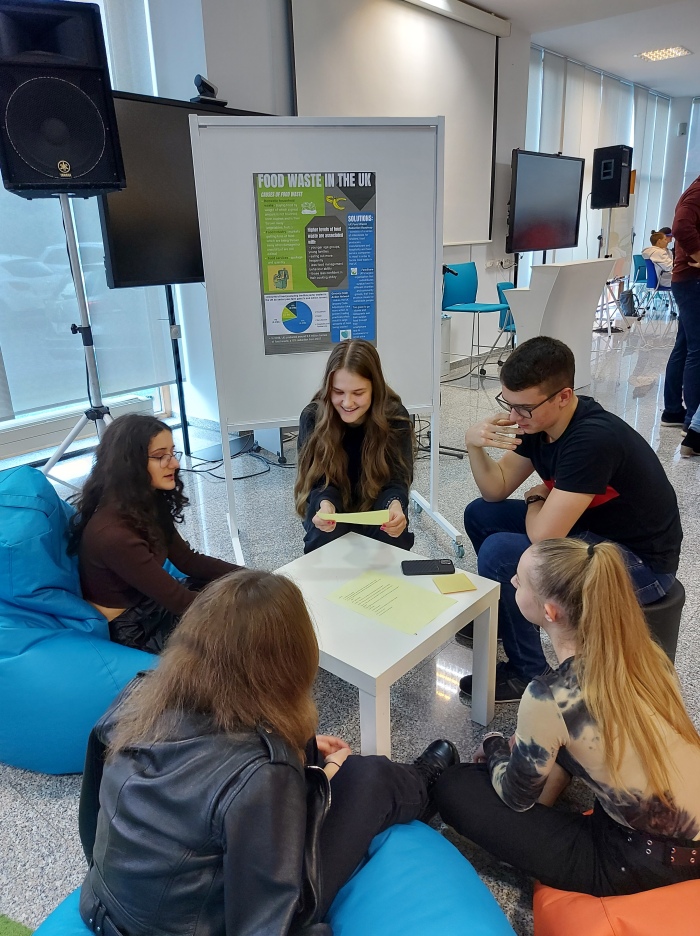“Just say no to food waste” – interdisciplinary project at Prva gimnazija Varaždin
During November and December 2022, students and teachers of the International Baccalaureate Diploma Programme at the First Grammar School in Varaždin, Croatia (Prva gimnazija Varaždin) implemented an interdisciplinary project entitled Just say no to food waste. The first exhibition was held on November 3rd 2022 in the school and showcased 6 subjects: Environmental Systems and Societies (ESS), English B, Geography, Biology, Chemistry, and Visual Arts students’ presentations. The second and final exhibition took place on December 22nd and included projecets in 8 different subjects: Croatian A Literature, Psychology, Theory of Knowledge, Visual Arts, Mathematics A&A, Biology, Computer Science, and Chemistry. The coordinator of the whole project was Marko Šafran, Biology and ESS teacher. The students and teachers felt motivated and inspired to start this project because of the global problem regarding food waste. They wanted to spread the word and raise awareness of food waste on a school level.
How to minimize food waste: food waste menu and food waste art
Different subjects held various presentations and activities regarding food waste. During the first exhibition, Environmental Systems and Societies presented a workshop on how to use banana peels. They researched 10 things to do with banana peels, presented their benefits, and demonstrated 3 ways of using banana peels. The Geography department held a workshop and discussion entitled Food waste menu. The workshop consisted of several steps. First students created their own original dishes from food leftovers, then they shared their ideas with other students and finally calculated food miles for their meal. Visual Arts students held a panel discussion titled Food waste art. Their exhibition presented interactive communication through art on the topic of food waste while also having an investigative approach and open-mindedness to new ideas regarding food waste. English B students held a presentation of posters on the topic of Food waste in Anglophone countries. They researched aspects such as types and causes of food waste, consequences for the environment, statists, and solutions for the problem of food waste. The Biology group had a food tasting and nutrition workshop Banana bread energy balls, where they prepared delicious treats using leftover food, which the visitors were encouraged to try. This part of the exhibition was most visitors’ favorite. Lastly, Chemistry students presented a poster titled How to minimize food waste. It explored the topic of additives and other methods of preserving food.
STEAM approach to food waste: from literary restaurant to natural dyes
The second and final exhibition was hosted by eight different subjects. The first one was Croatian A: literature, which held a discussion entitled Knjizevni ‘Restoran’ (Literary Restaurant). The students prepared excerpts from various Croatian literary works on the topic of meals, dishes, and food in general and visitors were encouraged to find the most interesting excerpt and have a discusssion about it. The Psychology students delivered a presentation of school experiments under the name Attitudes toward food. They also had the option of food tasting and presented their work through posters. Theory of Knowledge group held a discussion and debate with posters on the topic of The Way We Eat: Why Our Food Choice Matters. There were three different posters: one connected food waste with the environment, another informed us about meat consumption and how it affects the environment, and the last one presented general information and statistics regarding food waste. Visual Arts students presented their final exhibition regarding Food waste art. They wanted to show the absence of food through photographs taken by the students. Mathematics A&A presented data on food waste statistics through posters created by the students. The biology department held a discussion using the posters entitled Ways of turning food waste into high-value products. Computer Science presented a multimedia poster and held a discussion titled How Computer Science can help to reduce the food waste problem? Finally, Chemistry students created a poster under the name Food waste as an energy source & Natural dyes from food waste.
‘I was a part of the food is not waste exhibition, focusing on Visual Arts. It was very interesting to see how we as students can impact the world through the medium of art. It was a great and inspiring experience.’ – Tessa Fruk, 3.IB
I believe the First Grammar School Varazdin successfully conducted this project. The topic of food waste was approached from different perspectives so that everyone could feel involved in the project and informed about the topic. Whether it was art, statistical information, or research, the topic of food waste was excellently presented in both workshops. The students who were involved in creating the workshop and exhibitions learned something new and were left inspired to keep spreading the word about the problem of food waste. The students who visited the exhibitions left feeling more informed about the topic, and many of them claimed they are more aware of the problem and were going to start implementing guidelines from the workshops to reduce the problem. To conclude I would strongly encourage all of you to become more aware of this problem and start acquiring new habits and change your lifestyle to reduce food waste!
Written by Klara Tot, IB student at Prva gimnazija Varaždin, Croatia










